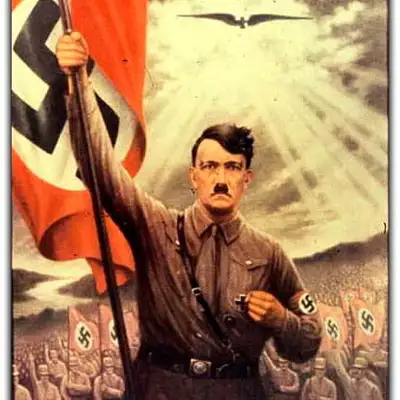
HISTORY
The concept of Germany as a distinct region in central Europe can be traced to Roman commander Julius Caesar, who referred to the unconquered area east of the Rhine as Germania, thus distinguishing it from Gaul (France), which he had conquered. The victory of the Germanic tribes in the Battle of the Teutoburg Forest (AD 9) prevented annexation by the Roman Empire, although the Roman provinces of Germania Superior and Germania Inferior were established along the Rhine. Following the Fall of the Western Roman Empire, the Franks conquered the other West Germanic tribes. When the Frankish Empire was divided among Charles the Great's heirs in 843, the eastern part became East Francia. In 962, Otto I became the first Holy Roman Emperor of the Holy Roman Empire, the medieval German state. By 1900, Germany was the dominant power on the European continent and its rapidly expanding industry had surpassed Britain's while provoking it in a naval arms race. Germany led the Central Powers in World War I (1914–1918) against France, Great Britain, and Russia and (by 1917) the United States. Defeated and partly occupied, Germany was forced to pay war reparations by the Treaty of Versailles and was stripped of its colonies as well as of home territory to be ceded to Belgium, France, and Poland, and was banned from uniting with German-settled regions of Austria. The German Revolution of 1918–19 put an end to the federal constitutional monarchy, which resulted in the establishment of the Weimar Republic, an unstable parliamentary democracy. In the early 1930s, the worldwide Great Depression hit Germany hard, as unemployment soared and people lost confidence in the government. In January 1933, Adolf Hitler was appointed Chancellor of Germany. His Nazi Party quickly established a totalitarian regime, and Nazi Germany made increasingly aggressive territorial demands, threatening war if they were not met. Remilitarization of the Rhineland came in 1936, then annexation of Austria in the Anschluss and German-speaking regions of Czechoslovakia with the Munich Agreement in 1938, and further territory of Czechoslovakia in 1939. On 1 September 1939, Germany initiated World War II in Europe with the invasion of Poland. After forming a pact with the Soviet Union in 1939, Hitler and Stalin divided Eastern Europe. After a "Phoney War" in spring 1940, German forces swiftly conquered Denmark, Norway, Belgium, Luxembourg, the Netherlands, and France, and forced the British army out of Western Europe. In 1941, Hitler's army invaded Yugoslavia, Greece and the Soviet Union. In 1989, the Berlin Wall was opened, the Soviet Union collapsed, and East Germany was reunited with West Germany in 1990. In 1998–1999, Germany was one of the founding countries of the eurozone. Germany remains one of the economic powerhouses of Europe, contributing about one-quarter of the eurozone's annual gross domestic product. In the early 2010s, Germany played a critical role in trying to resolve the escalating euro crisis, especially concerning Greece and other Southern European nations. In the middle of the decade, the country faced the European migrant crisis as the main receiver of asylum seekers from Syria and other troubled regions.

CULTURE
The culture of Germany has been shaped by major intellectual and popular currents in Europe, both religious and secular. Historically, Germany has been called Das Land der Dichter und Denker (the country of poets and thinkers).There are a number of public holidays in Germany. The country is particularly known for its Oktoberfest celebrations in Munich, its carnival culture and globally influential Christmas customs known as Weihnachten.October has been the national day of Germany since 1990, celebrated as the German Unity Day (Tag der Deutschen Einheit). The UNESCO inscribed 38 properties in Germany on the World Heritage List. Germany was the world's second most respected nation among 50 countries in 2013. A global opinion poll for the BBC revealed that Germany is recognized for having the most positive influence in the world in 2011, 2013, and 2014.

CLIMATE
Germany's climate is temperate and marine, with cold, cloudy winters and warm summers and in the south occasional warm föhn wind. ... In the northwest and the north, the climate is oceanic and rain falls all the year round. Winters there are relatively mild and summers comparatively cool.

ECONOMY
Germany’s economic freedom score is 73.5, making its economy the 27th freest in the 2020 Index. Its overall score is unchanged from the 2019 Index, with an uptick in the government integrity score offset by a drop in judicial effectiveness. Germany is ranked 14th among 45 countries in the Europe region, and its overall score is well above the regional and world averages. The German economy has resided in the lower half of the mostly free ranks for more than a decade. GDP growth has been expanding steadily although perhaps less than optimally. Excessive government spending and costly labor regulations are the chief culprits slowing the expansion of economic freedom and the economy itself in Germany. Prospects for market-oriented reforms in either category are slim under the current administration. The government has doubled down on an expensive package of measures to address climate change that The Economist estimates will cost €54 billion by 2023. The top personal income tax rate is 47.5 percent (including a 5.5 percent surcharge). The federal corporate rate is 15.8 percent (effectively above 30 percent with other taxes). The tax burden equals 37.5 percent of total domestic income. Government spending has amounted to 43.9 percent of the country’s output (GDP) over the past three years, and budget surpluses have averaged 1.2 percent of GDP. Public debt is equivalent to 59.8 percent of GDP. The total value of exports and imports of goods and services equals 87.2 percent of GDP. The average trade-weighted applied tariff rate (common among EU members) is 1.8 percent, with 637 EU-mandated nontariff measures reportedly in force. Germany has one additional country-specific nontariff barrier. In late 2018, the government expanded the scope of its foreign direct investment screening mechanism. The competitive financial sector offers a full range of services
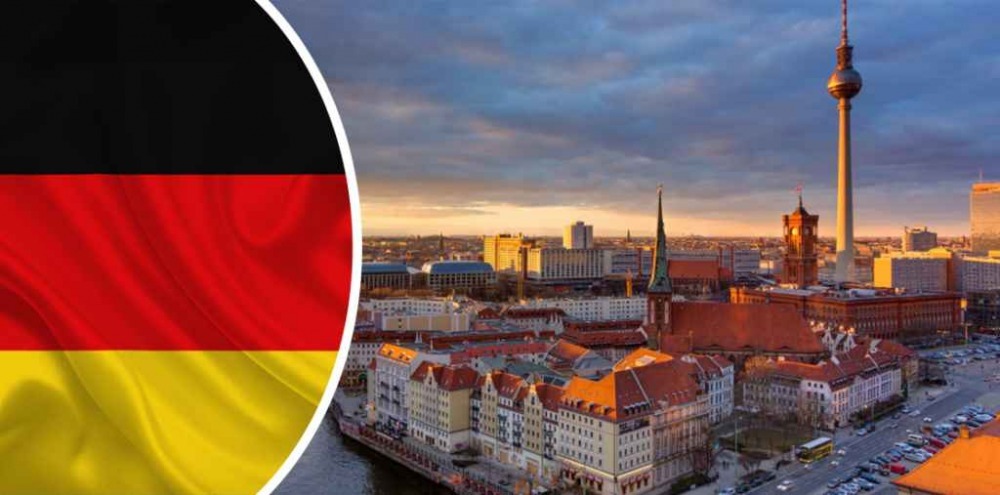
LOW OR NO TUITION FEES
At the time when higher education is becoming a necessity due to the increased need for highly qualified professionals and cost of attending university are increasing faster, Germany is the only top study destination whose universities charge no tuition fees. A decision which came into power in October 2014 stated that all international students attending a public university in Germany would be free from paying normal tuition fees. Foreign students will only have to pay few administrative costs like student contribution, student union fee and a public transport ticket which account to around €250 per semester altogether.
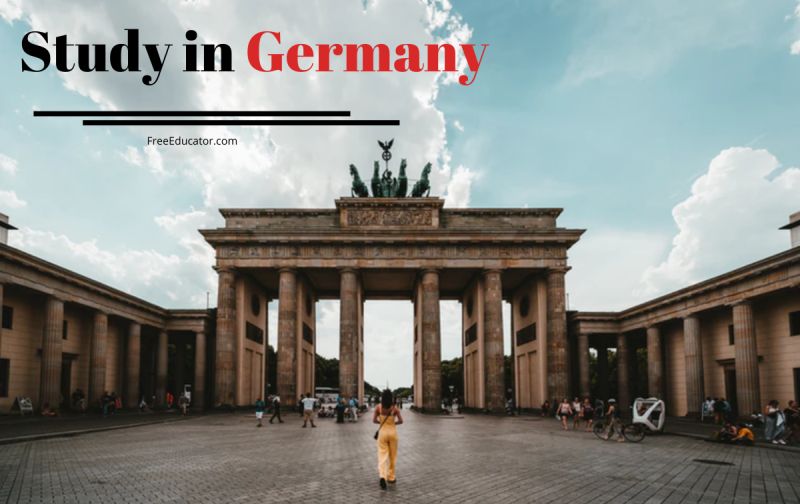
TOP RANKED UNIVERSITES
Based on official recordings in 2018, there are 429 public higher education institutions functioning in Germany among which 106 are universities. German universities are above global higher education standards. Some of them have been consistently ranked among the world’s best universities. Students value these universities for the quality of education, hands-on experiences during their studies, opportunities to improve academically during and after studies and most importantly the safe and friendly environment.

COUNTLESS DEGREE COURSE
In relation to having a large number of universities, Germany offers countless degree courses designed to suit everyone’s interests. As an industrialized country Germany has invested a lot in engineering universities and today Engineering programs are particularly valued at German universities. However, there are a lot more study programs offered at these universities and in some of them, they are global leaders like medicine and pharmacy.

GLOBALLY RECOGNIZED STUDY PROGRAMS
Study programs at German universities are modern in terms of their structure and the way they’re delivered to students. They’re designed to meet up the most up-to-date scientific developments running out in the world and educate individuals who can confidently face global challenges. Their curriculum is subject to constant provision and change aiming to find or create comprehensive approaches to teaching and research. At the end of your course, you will be certified with a degree which is globally recognized and valued.
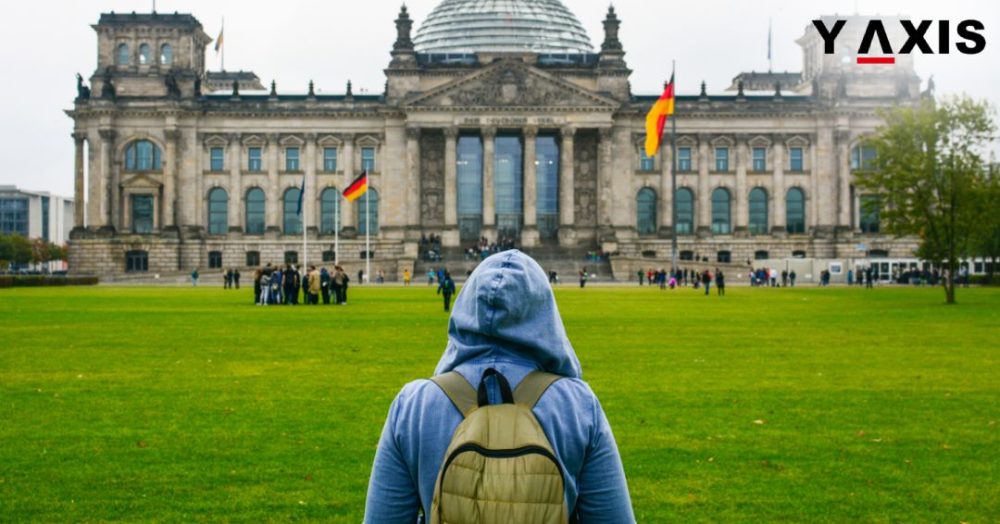
WORK OPPORTUNITIES FOR INTERNATIONAL STUDENTS
The German law states that international students are allowed to work part-time for up to 20 hours a week or 120 full days of a year. It is estimated that more than 60% of current international students work part-time while studying in Germany. You don’t need to possess a qualification in the first place because there is a wide range of jobs available and you will likely find something anyway. Commonly, students in Germany work as tutors, bartenders, administrative staff, babysitters, etc.
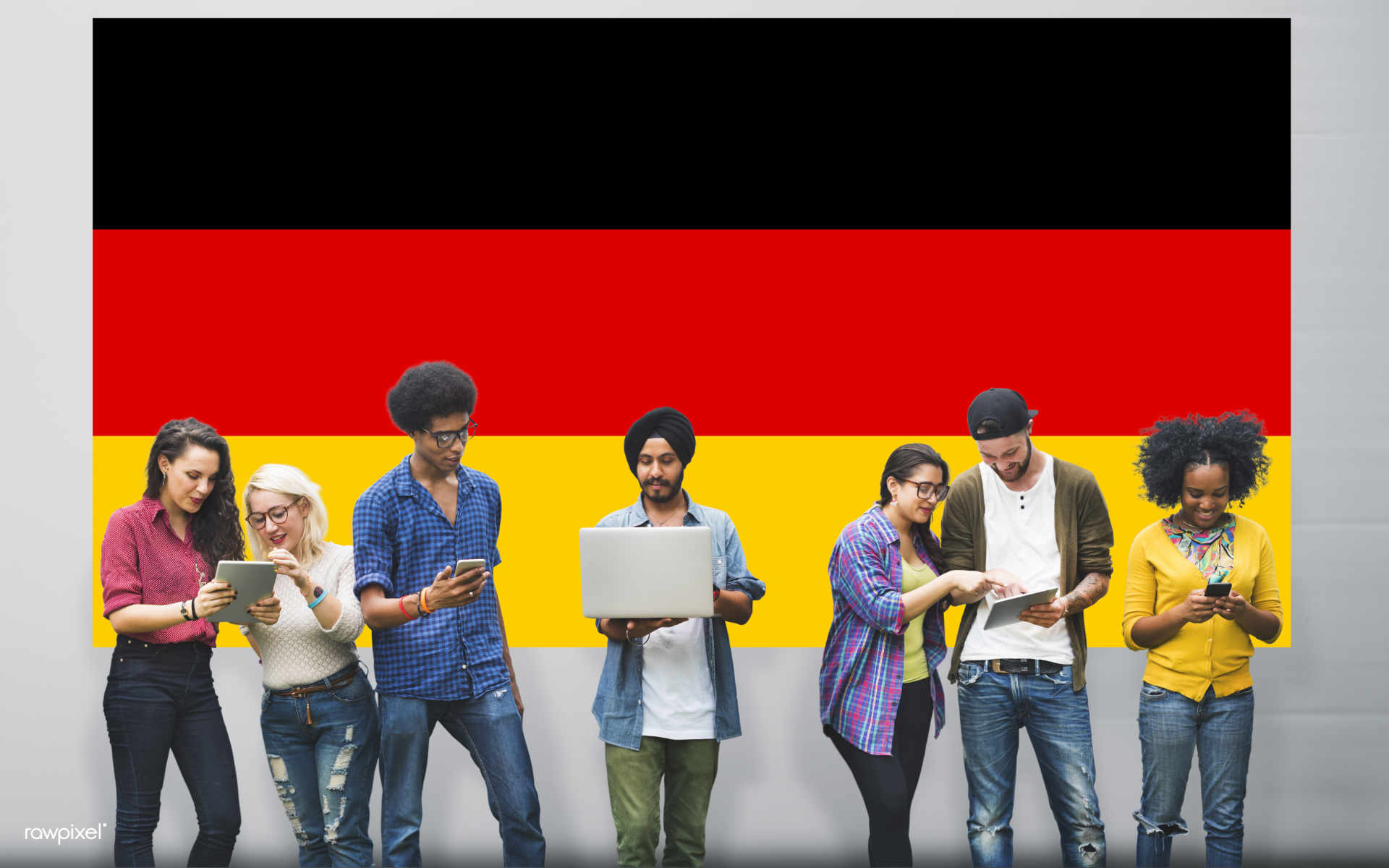
DIVERSE COMMUNITY
Germany has traditionally been a hub for other nationals. Nowadays, German nationals live in harmony with many foreigners who came here to work and live with their families. Additionally, German universities attract thousands of international students who look upon Germany as an opportunity to reach their education goals. That said in Germany you will encounter a diverse community, each with its own specifics that will make you see the world from a different angle. Also, you can make a lot of friends coming from all around the world and learn about their customs and traditions.
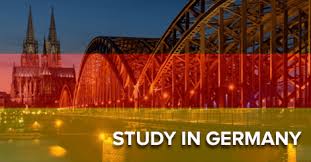
CULTURAL AND HISTORICAL HERITAGE
Germany has a long, rich and complex history and its remarks are scattered all across the country. Today, you certainly know less about Germany than you can imagine. The country has been a major player through important stages of humankind’s history. Their natives have given an unmatched contribution to historical, cultural and scientific movements that changed forever the entire course of global history. Studying in Germany is a great opportunity for you to visit most of these cultural and historical gems, hear unbelievable stories related to them and collect unforgettable memories.
Application Procedure
- ⦁ Select a Course and Institution
- ⦁ Apply for the course
- ⦁ Received your Letter of Offer
- ⦁ Pay First Installment of Tuition fees
- ⦁ Receive Confirmation of Enrolment
- ⦁ Apply for your Visa
- ⦁ Fly to Germany
Undergraduate
- ⦁ Minimum SSC/ O level grade should be 3.0/5(B)
- ⦁ Minimum HSC/A Level/ Diploma grade should be 3.0/2(B)/2.5
- ⦁ Needs 1 year university level Study
- ⦁ Proof of English-language: IELTS 6.0 (minimum)
Postgraduate:
- ⦁ Minimum SSC/ O level grade should be 3.0/5(B)
- ⦁ Minimum HSC/A Level/ Diploma grade should be 3.0/2(B)/2.5
- ⦁ Minimum Bachelor Degree CGPA 3.2
- ⦁ Proof of English-language proficiency: IELTS 6/6.5/7.0

DURING STUDY
During study students can work 20 hours per week. But during vacation students can work full time.
AFTER STUDY
After Study student will get 18 months job searching visa and within that time they have to get subject related job. After getting subject related job they will get 4 years European Blue card. After that they have to show 33 months job experience and B2 level German Language certificate then they will get Temporary PR for 5 years. After 5 years they will be able to apply for Permanent Resident.
Documents Required
- ⦁ passport
- ⦁ 3 Photos
- ⦁ Visa application form
- ⦁ A letter of acceptance from a German educational institution.
- ⦁ All educational documents, including marks sheets (SSC, HSC, Bachelors, Masters or other post- secondary, college, vocational or university diploma, certificate or degree).
- ⦁ Proof of sending Block amount.
- ⦁ Insurance copy
- ⦁ Accommodation confirmation letter.
- ⦁ CV
- ⦁ Motivation Letter
- RWTH Aachen
- Technical University of Berlin
- Bielefeld University
- Ruhr University Bochum
- University of Bonn
- University of Bremen
- Jacobs University Bremen
- University of Cologne
- Darmstadt University of Technology
- Technical University of Dortmund
- Dresden University of Technology
- University of Duisburg-Essen
- Humboldt University of Berlin
- University of Cologne
- Dresden University of Technolog
- University of Erlangen-Nuremberg
- University of Hamburg
- University of Kassel
- University of Kiel
- University of Magdeburg
- University of Marburg
- University of Erlangen-Nuremberg
- University of Paderborn
- University of Passau
- University of Potsdam
- University of Rostock
- Saarland University
- University of Trier
- University of Wuppertal
- University of Rostock
- University of Bremen
- Jacobs University Bremen
- University of Hamburg
- University of Kiel
- Ruhr University Bochum
- University of Bonn
- Technical University of Dortmund
- University of Duisburg-Essen
- University of Düsseldorf
- University of Kassel
- University of Mainz
- University of Wuppertal
- University of Magdeburg
- University of Potsdam
- University of Weimar
- University of Munich
- University of Würzburg
- RWTH Aachen University
Living cot |
|
| German Universities are tuition fees. | In Germany there is no Tuition fee but you have transfer 10,236 Euros as Block money from your account. |
